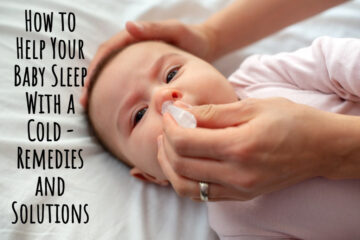Keeping your baby healthy through weather changes involves a comprehensive approach that addresses various aspects of their well-being. From clothing choices to dietary considerations, here is an in-depth guide to help you navigate the challenges that come with shifting weather patterns and ensure your baby stays healthy and happy.
Dressing Your Baby Appropriately:
One of the key elements in safeguarding your baby’s health during weather changes is dressing them appropriately. Babies, especially newborns, have difficulty regulating their body temperature, so it’s crucial to choose clothing that suits the prevailing weather conditions.
Cold Weather:
– In colder weather, layering is essential. Begin with a snug onesie as a base layer, followed by a long-sleeved outfit and a warm, insulated outer layer such as a fleece jacket or snowsuit.
– Use hats that cover the ears and mittens to protect their tiny hands from the cold.
– Ensure their feet are kept warm with booties or socks.
Hot Weather:
– When temperatures rise, dress your baby in lightweight, breathable fabrics such as cotton. Loose-fitting clothing allows for better air circulation and helps prevent overheating.
– Use a wide-brimmed hat to shield your baby’s face from the sun.
– Keep their feet cool with breathable socks or booties.
Hydration:
Maintaining proper hydration is crucial for your baby’s health, regardless of the weather. Adequate fluid intake is especially vital during warmer months when the risk of dehydration is higher.
Breastfeeding or Formula: For infants, ensure they receive an adequate amount of breast milk or formula. Breast milk is the ideal source of nutrition for babies, providing essential nutrients and hydration.
Introducing Water: For babies older than six months, you can introduce small sips of water, particularly in hot weather. Consult with your pediatrician to determine the appropriate amount, as excessive water intake can be harmful.
Sun Protection:
Protecting your baby from the sun’s harmful rays is essential to prevent sunburn and reduce the risk of long-term skin damage.
Sunscreen: If your baby is six months or older, apply a baby-friendly sunscreen with at least SPF 30 to areas of exposed skin. Perform a patch test before using a new product to ensure your baby does not have an adverse reaction.
Shade: Whenever possible, keep your baby in the shade, especially during peak sunlight hours between 10 a.m. and 4 p.m.
Temperature Regulation Indoors:
Maintaining a comfortable indoor environment is crucial for your baby’s health. Extreme temperatures, whether too hot or too cold, can affect their well-being.
Heating in Cold Weather: Ensure your baby’s room is adequately heated during colder weather. Use a room thermometer to monitor the temperature and dress your baby in appropriate sleepwear.
Cooling in Hot Weather: Use fans or air conditioning to keep the indoor temperature cool during hot weather. Dress your baby in lightweight clothing and consider using a light blanket for sleep.
Good Hand Hygiene:
Practicing good hand hygiene is a fundamental aspect of preventing the spread of illnesses, especially during weather changes when viruses may be more prevalent.
Handwashing: Wash your hands regularly and encourage older children and caregivers to do the same. Use a mild, baby-safe soap, and ensure that everyone who handles the baby has clean hands.
Proper Ventilation:
Ensuring good ventilation in your home contributes to a healthy indoor environment. Fresh air circulation helps reduce the concentration of airborne pollutants and minimizes the risk of respiratory infections.
Open Windows: When weather conditions permit, open windows to let fresh air circulate through your home. Ensure that the baby’s room is well-ventilated.
Regular Check-ups:
Regular check-ups with your pediatrician are essential for monitoring your baby’s growth and development. Weather changes can impact your baby’s susceptibility to illnesses, making routine medical assessments crucial.
Vaccinations: Stay up-to-date with your baby’s vaccinations. Vaccines protect against various diseases and contribute to the overall health and well-being of your child.
Healthy Diet:
A nutritious diet is vital for your baby’s growth, development, and immune system support.
Breastfeeding or Formula: For infants, breastfeeding or formula feeding provides essential nutrients. Breast milk, in particular, contains antibodies that help protect your baby from infections.
Introduction of Solid Foods: As your baby transitions to solid foods, offer a variety of nutrient-rich options. Include fruits, vegetables, whole grains, and proteins to ensure a balanced diet.
Protecting Against Illness:
During weather changes, the risk of illnesses such as colds and flu may increase. Taking preventive measures can help protect your baby.
Avoiding Sick Individuals: Minimize your baby’s exposure to individuals who are sick, especially during flu or cold seasons. Encourage family members and caregivers to practice good hygiene to prevent the spread of germs.
Consistent Routine:
Babies thrive on routine, and maintaining a consistent schedule can positively impact their overall well-being.
Feeding and Sleeping Schedule: Stick to a regular feeding and sleeping routine. Consistency can help your baby adjust to changes in weather more easily.
In conclusion, ensuring your baby’s health through weather changes involves a holistic approach that encompasses clothing choices, hydration, sun protection, indoor temperature regulation, hand hygiene, ventilation, regular check-ups, a healthy diet, illness prevention, and a consistent routine. Always consult with your pediatrician for personalized advice based on your baby’s specific needs and health condition, as individual circumstances may vary. By incorporating these practices into your daily routine, you can create a supportive environment that promotes your baby’s health and well-being throughout the year.




